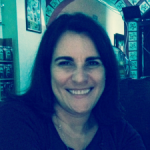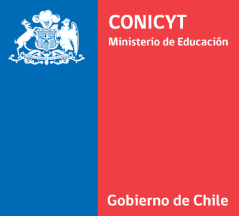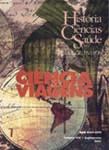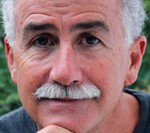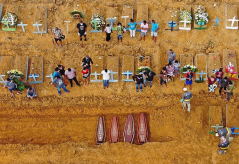
April 2022
Call for Papers. International Virtual Workshop
“Expert knowledge, international actors and Latin American states during the 20th century. Local observations, global approaches”
October 6-7, 2022
Organizer institutions:
Lateinmerika Institut, Freie Universität Berlin, Germany
Instituto de Humanidades y Ciencias Sociales del Litoral, CONICET, Argentina
Over the past four decades, a series of debates have problematized the state masquerade which hides the political work that make it possible (Abrams, 1988). While some of them unraveled questions related to state capacities, the role of bureaucracies and the impact of international processes (Skocpol, 1985; Evans, 1991; Mann, 1984), others started to emphasize the imbricate processes that interconnect the states along with multiple transnational dynamics (Sharma & Gupta, 2006). International expert networks, then, acquire significant relevance not only in the circulation of knowledge (Vandendriessche, Peeters & Wils, 2015; Charle, Schriewer & Wagner, 2004; Neiburg & Plotkin, 2004; Keck y Sikkink, 1998), but also in the conception and implementation of social policies, where international organizations gained a mayor role from the interwar period onwards (Conrad, 2011; Kott, 2017; Wendling, 2006).
Over the past decades, a growing number of scholars gained interest in the global scope as a fruitful approach to understand these phenomena regarding macro structural processes, spheres imbrication, cultural fluxes that transcend national frontiers and social relations among key actors who sustain those interchanges (Conrad, 2016; Riojas & Rinke, 2016; Olstein, 2014). In this sense, recent debate intended to acknowledge the importance of spatiality to study the concrete inscription of those long term processes, as well as the logics they developed in each case (Torre, 2018). Moreover, some scholars insist on the possible dialogue among methodological and historiographic elements between microhistory and the global scope (Levi, 2019), standing for a micro-global history (Bohorquez, 2018), or a micro-spatial history that studies global processes with an emphasis on interconnected singularities (De Vito, 2019).
The objective of this workshop, then, is to promote an opportunity to discuss internationally ongoing research projects from postgraduate scholars and faculty of Argentina and Germany, regarding the transnational circulation of knowledge and its impact on state configuration and practices. It particularly aims to link institutions from both countries.
Therefore, we expect papers that explore a series of expert knowledge that became relevant for social policy in Latin American states during the 20th century, focusing on how the main actors of the process took part in international networks and dialogued with its context. There will be a particular interest in the adaptation of those debates not only in national legislation, but also in concrete state practices and policies.
Conditions
Languages: In order to promote international debate, presentations can be given in Spanish, English and/or Portuguese
Organization:
With the aim of promoting discussion and to problematize ongoing research towards a global approach, there will be a selection of presentations to provide each scholar the opportunity to share their work and to have a consistent time to debate with other colleagues. The Workshop will be held through Webex platform between 13-18hs (Berlin time). After the event, a selection of papers will be published in a book compilation.
Important dates
July 8 2022: Submission deadline abstract
July 29 2022: Notification of acceptance
Sept 12 2022: Submission deadlines papers
Oct 6-7 2022: International Workshop
Guidelines for abstract and papers
Please submit abstracts to joseignacio.allevi@gmail.com, including the names and affiliations of presenters, an outline of the proposed presentation (300 words max.) and 3-5 keywords. Once accepted, the paper should have a length of 20 pages max. (without including the abstract and bibliography).
Formal aspects: Times New Roman, 12pt., space 1,5pt, A4, margins 2,5cm.
Related articles in HCS-Manguinhos:
Allevi, José Ignacio. Sociabilidades, redes y circulación de saberes en la conformación de un “ámbito psi” en la Argentina de entreguerras (Santa Fe, 1919-1943). Hist. cienc. saude-Manguinhos, Jun 2016, vol.23, no.2, p.543-550. ISSN 0104-5970
Medical knowledge and moral reflections during the Rosas era, Buenos Aires, 1835 – 1847 In the current issue of HCS-Manguinhos (vol.26 no.3 July/Sept. 2019), Mariano Di Pasquale analyzes how medical discourse incorporated a series of reflections on moral behaviors in Buenos Aires in the early nineteenth century.
Biomedical knowledge in Mexico during the Cold War This paper provides an overview of the state of Mexican genetics and biomedical knowledge during the second half of the twentieth century.
Transnational knowledge during the Cold War Our current issue is now available online. It features a dossier on science during the Cold War, a period that affected not only technology related to the military and space races, but also research in biomedicine and other fields.
Writing the history of knowledge in Brazil Our latest issue features a “Research Note” by Peter Burke, one of the greatest historians of our time.
The scientific and medical knowledge of the New World An interview with Mark Thurner (Institute of Latin American Studies, University of London), principal investigator of LAGLOBAL, an international network aiming to advance scholarship on knowledge practices pioneered in Latin America.
Knowledge of Brazilian benthic marine fauna
Leila Longo and Gilberto Filho analyze the marine biodiversity in Brazil and the state government initiatives to stimulate research.





